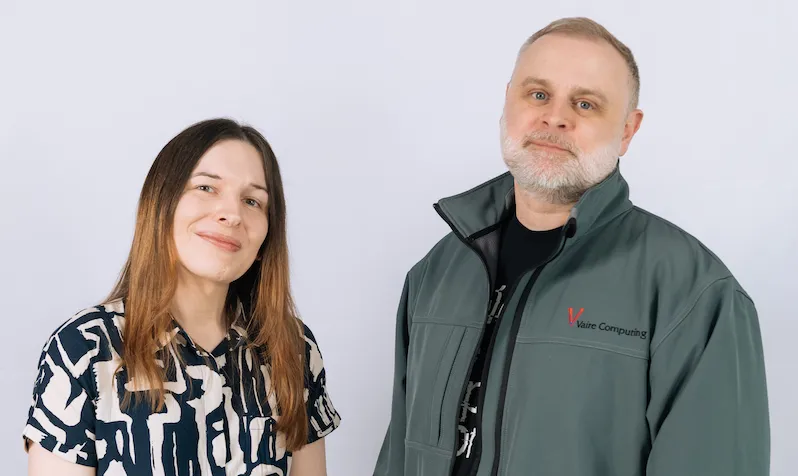Reversible computing startup Vaire Computing has raised $4 million in a seed round, bringing its total raised to $4.5 million. The seed round was led by 7percent Ventures and Heyzap co-founder Jude Gomila, and will help it to work on building silicon chips that would consume negligible amounts of energy and generate little heat, if any.
Reversible computing aims to reduce the waste heat generated by traditional processors. When chips execute operations, the compute power needed generates waste heat – because energy cannot be created or destroyed, an input that receives two units of bit-energy uses one unit of bit-energy to perform the output and then loses the second bit-unit in the form of heat.
As processors are tasked with performing higher-density workloads, the waste heat being generated is also increasing, hence the need for air and liquid cooling solutions in data centers.
Reversible computing chips have the same number of inputs as outputs, meaning no bits are lost, thus removing the need for excess energy to be removed in the form of heat.
“Close to 100 percent of the energy in a chip ends up being dissipated as heat. So you’re basically wasting it. But in a reversible chip, you actually never dissipate this energy. You don’t allow the energy to become heat, and you recycle it internally,” said Vaire CEO, Rodolfo Rosini in a TechCrunch interview.
“This means that two things happen: One, the chip doesn’t get hot, and two, you only need a tiny amount of energy to make it work. So, it uses almost no energy, other than the same amount of energy that it has just recycled,” he said.

Rosini claims that chips that can do reversible computing can be used on generic applications, just as normal CPUs are used today. “Other kinds of chips are domain-specific, but with computing, you can do anything… We could also build a CPU or GPU, and it would look like any other chip.”
Despite its conceptual roots dating back to IBM’s 1961 insights, Rosini reports a scarcity of funding for reversible computing technology, with current investments predominantly directed towards quantum computing, photonics, and GPUs.
Hannah Earley, Vaire’s co-founder and CTO, a former researcher at Cambridge University, highlighted the potential of reversible computing to enable next-generation computing capabilities, leveraging her background in “unconventional computing” during her PhD studies.





